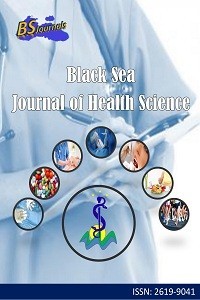
Black Sea Journal of Health Science
Yazarlar: ["Elif DAĞLI", "Nilüfer TOPKARA"]
Konular:-
DOI:10.19127/bshealthscience.1167822
Anahtar Kelimeler:Vaccination,Vaccine hesitancy,Vaccine rejection,Parental attitudes,Health literacy levels
Özet: Health literacy is important for parents to correctly perceive and implement decisions about their children's health. Health literacy of parents can affect their understanding of the requirements of preventive treatments and their positive attitudes and behaviors towards childhood vaccines. The global growth of vaccine hesitations in recent years has led to increasing concern at WHO. Therefore, the level of health literacy may be important in experiencing vaccine hesitancy. For this reason, the study was carried out to determine the relationship between the health literacy level of parents with 0-59 months old children and their attitudes and behaviors towards childhood vaccinations. A cross-sectional and descriptive design was used in the study. The sample group consisted of 1038 parents. As data collection tools in the research; introductory information form containing introductory information, Parents' Attitudes to Childhood Vaccines Scale and Health Literacy Scale were used. Parents were contacted via an online survey link. The mean age of the parents was 35.36 ± 4.93 years, and 81.7% had an undergraduate/graduate degree. A statistically significant difference was found between the parents' scores from the PACV and the status of obtaining information and negative information about vaccines (Z=2.431, P=0.015; Z=8.707, P=0.000, respectively). Vaccine hesitancy was higher in those who did not obtain information about vaccines than those who did, and in those who obtained negative opinions about vaccines from health personnel than those who did not. As scores from the T-SOY increased, the scores from the PACV decreased. As parents' health literacy levels increased, their vaccine hesitancy decreased. It is thought that initiatives targeting health literacy can improve vaccination coverage and that knowing these relationships well will benefit determining the strategies for combating vaccine opposition and their effectiveness. In our study, vaccine hesitancy was higher in parents who obtained negative opinions from healthcare professionals. This striking result of our study is important in showing that it is not possible to fight against vaccine opposition without building the trust in vaccines among healthcare professionals.